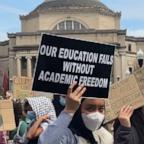United Nations to hold emergency meeting after suspected chemical attack in Syria
The UN plans to discuss the suspected chemical attack that killed more than 50.
— -- The United Nations Security Council will hold an emergency meeting today to discuss the suspected chemical weapons attack that killed more than 50 people in a Syrian town on Tuesday.
UN ambassador Nikki Haley condemned the attack via Twitter, placing the blame on Syria's president Bashar al-Assad.
"Assad must be held accountable for these barbaric attacks against his own people," Haley wrote.
The Syrian military has denied responsibility.
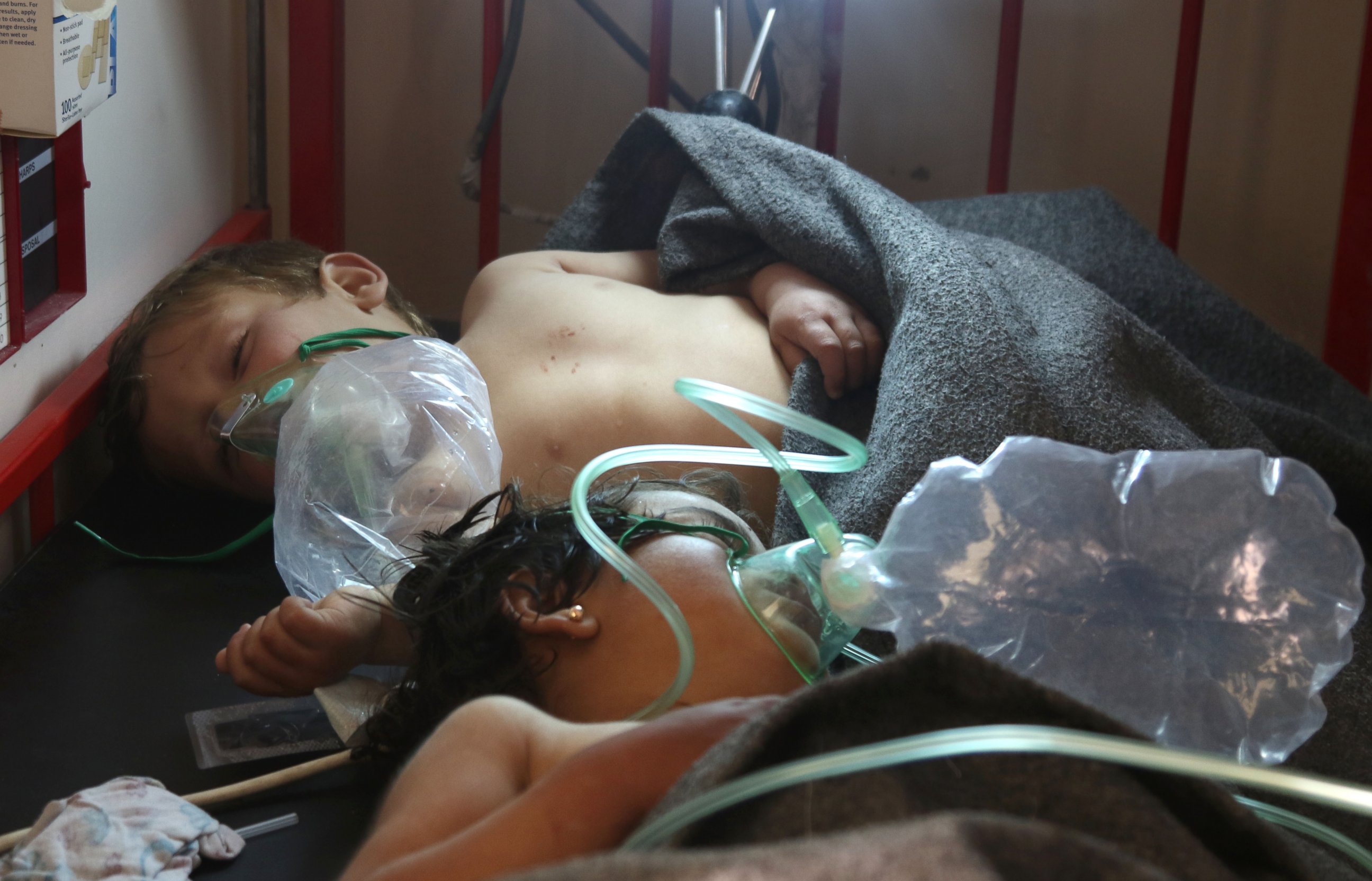
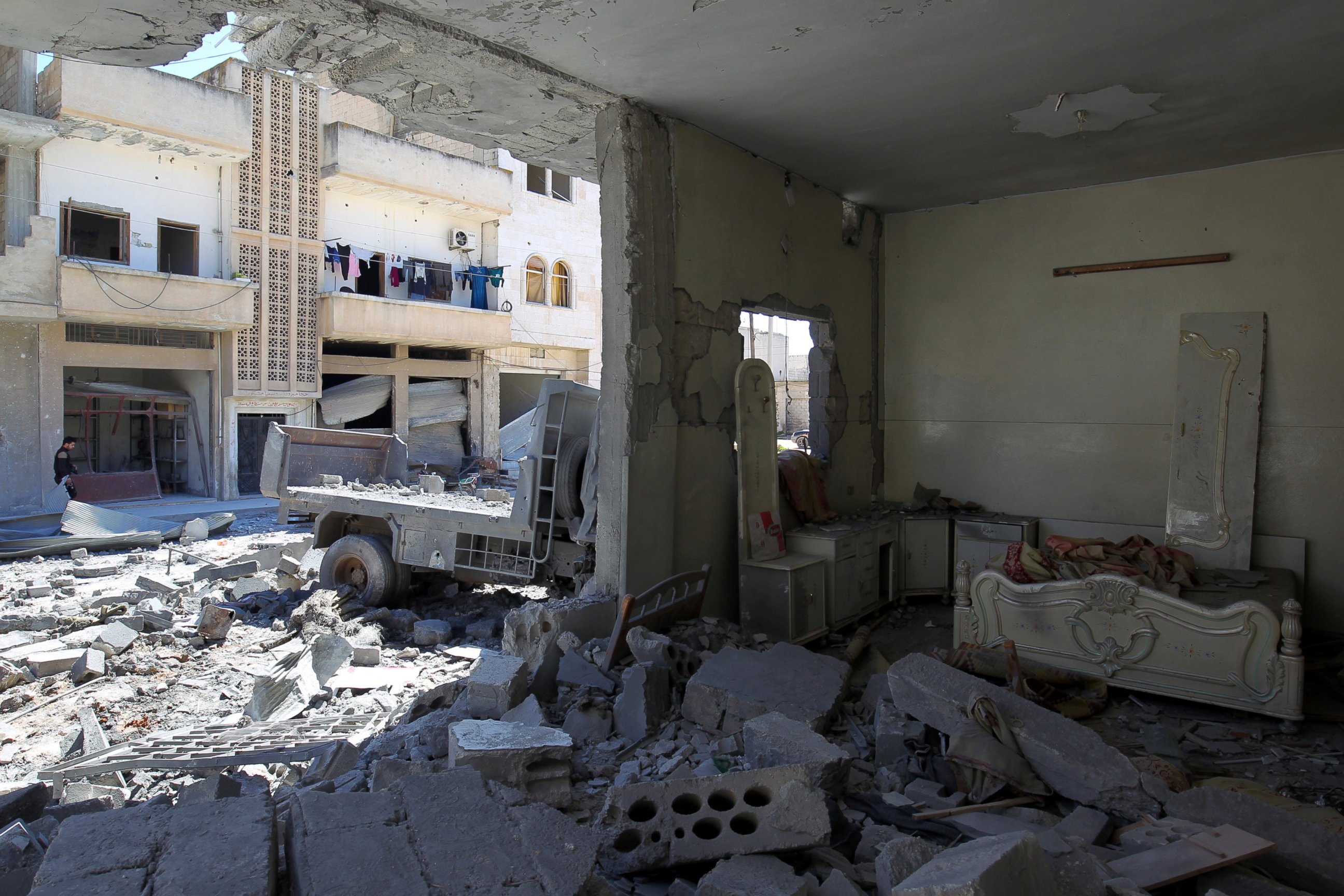
Government officials have not confirmed what chemical was used to attack these civilians in Khan Sheikhoun early Tuesday morning, but experts agree that video released by Syrian activists showing men, women and children struggling to breathe as rescue workers rush to wash the substance off their bodies suggest that chemical weapons were used.
Rebecca Hersman, the former deputy assistant secretary of defense for countering weapons of mass destruction for the Obama administration, told ABC News that the deployment of chemical weapons in the Syrian conflict represents one of their most widespread uses in modern history and cited continued failure of the international community to hold those responsible to account.
"I think all of the deaths in Syria are incredibly tragic," Hersman said. "The loss of life is almost beyond imagination. But when we see the loss of life tied to the complete failure of an international regime and the unwillingness of the international community to step up and document these cases and discern a path to accountability and make the security council work the way it's supposed to make the OPCW Executive Secretary work the way it's supposed to, then we should be even more disappointed."
White House press secretary Sean Spicer called the attack "an intolerable act" made possible by the "weakness and irresolution" of Donald Trump's predecessor, Barack Obama, as Syria descended into chaos.
"Today's attack is reprehensible and cannot be ignored by the civilized world," Spicer said. "These heinous actions by the Bashar al-Assad regime are a consequence of the past administration's weakness and irresolution. President Obama said in 2012 that he'd establish a red line against the use of chemical weapons and then did nothing. The U.S. stands with our allies across the globe to condemn this intolerable act."
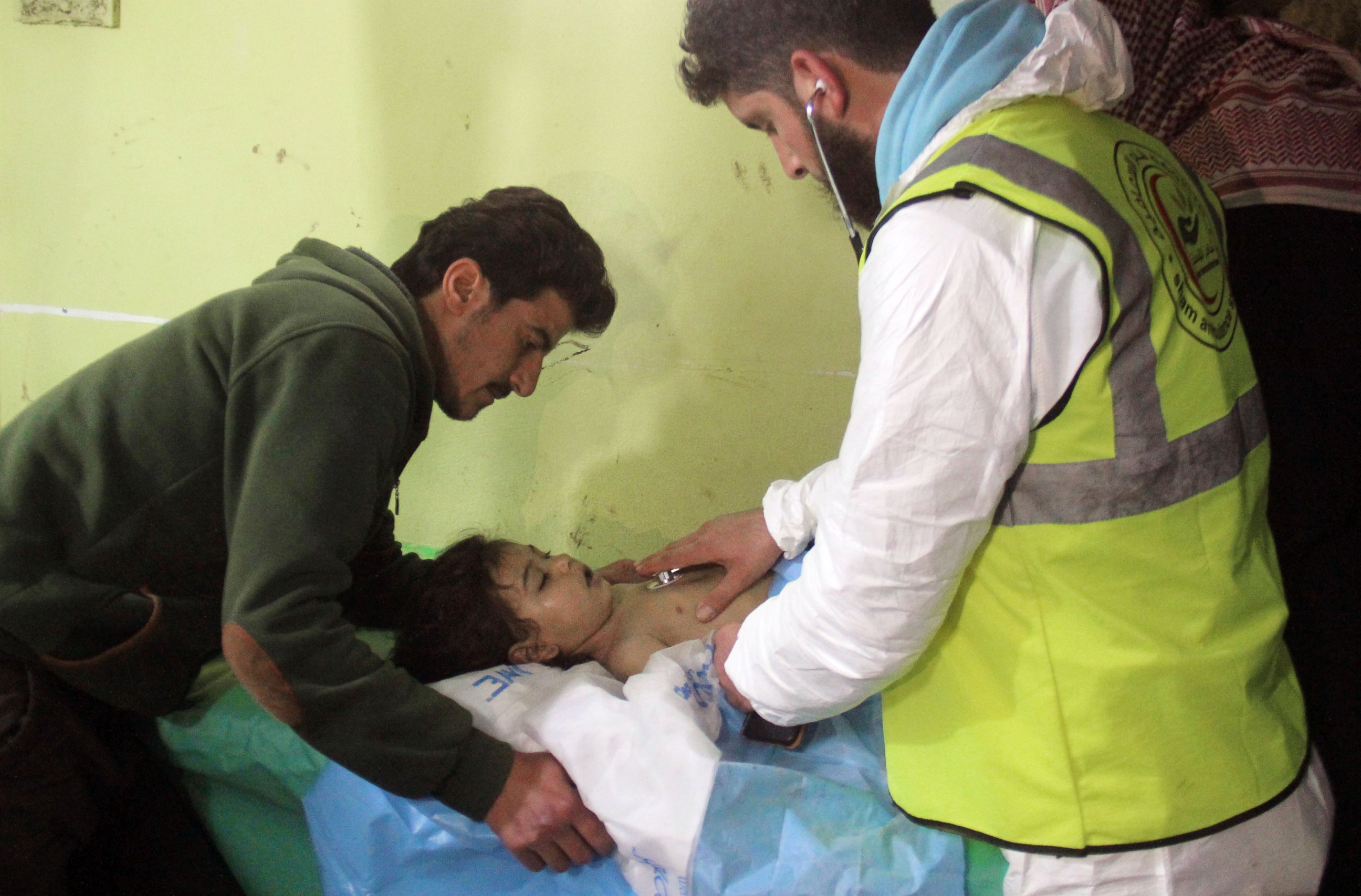
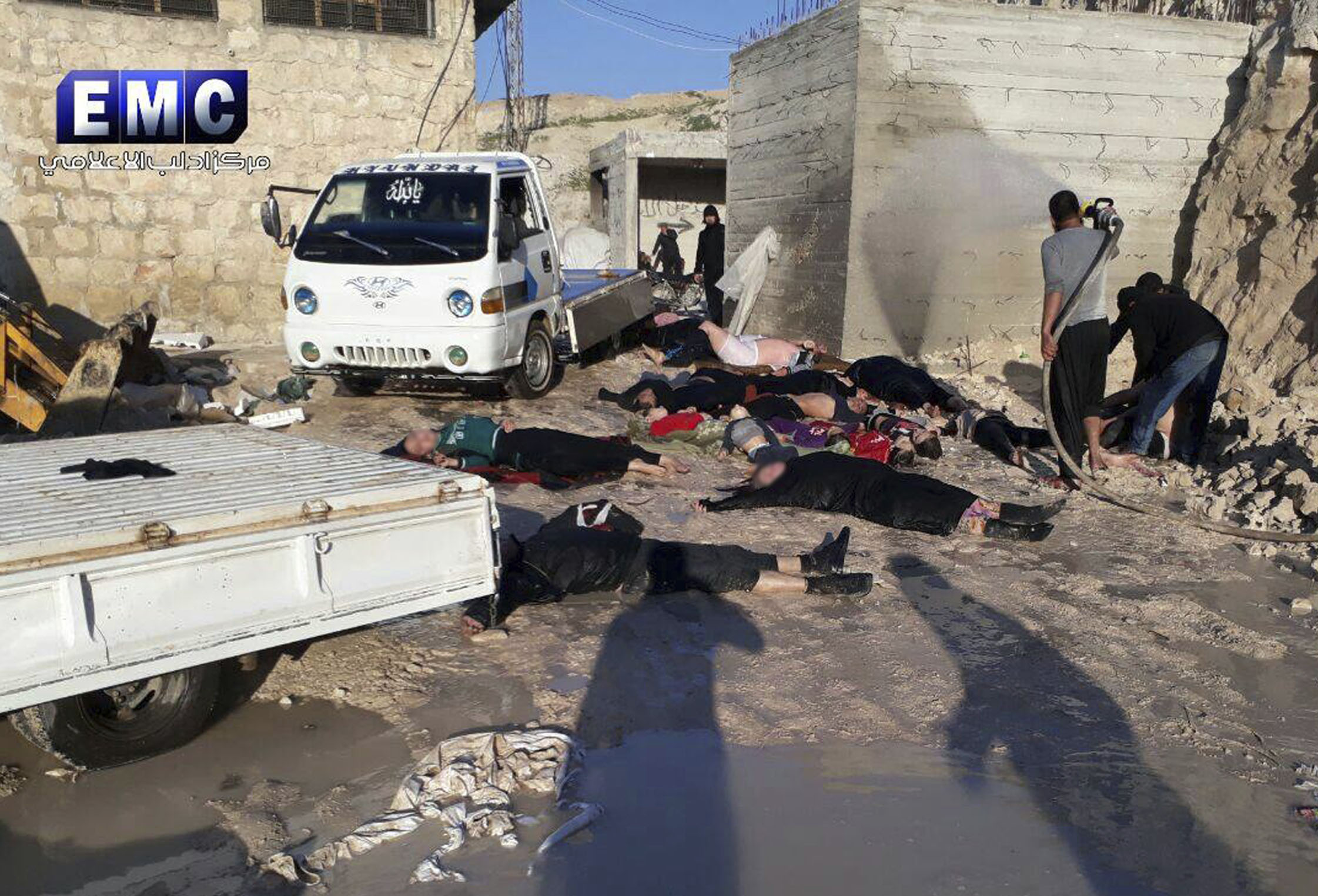
Following a 2013 chemical weapons attack that killed more than 1400 people outside of Damascus which a U.S. government intelligence assessment concluded likely used a nerve agent, the Obama administration threatened retaliation but ultimately called off planned airstrikes after Assad agreed to turn over the majority of his chemical weapons arsenal to the Organization for the Prohibition of Chemical Weapons, an international watchdog group.
Hersman said world leaders should focus on evidence and accountability. She called for immediate investigations to determine what chemicals may have been used and noted that in February Russia vetoed a UN Security Council resolution to impose sanctions on the Syrian government for its repeated use of chemical weapons -- for the seventh time.
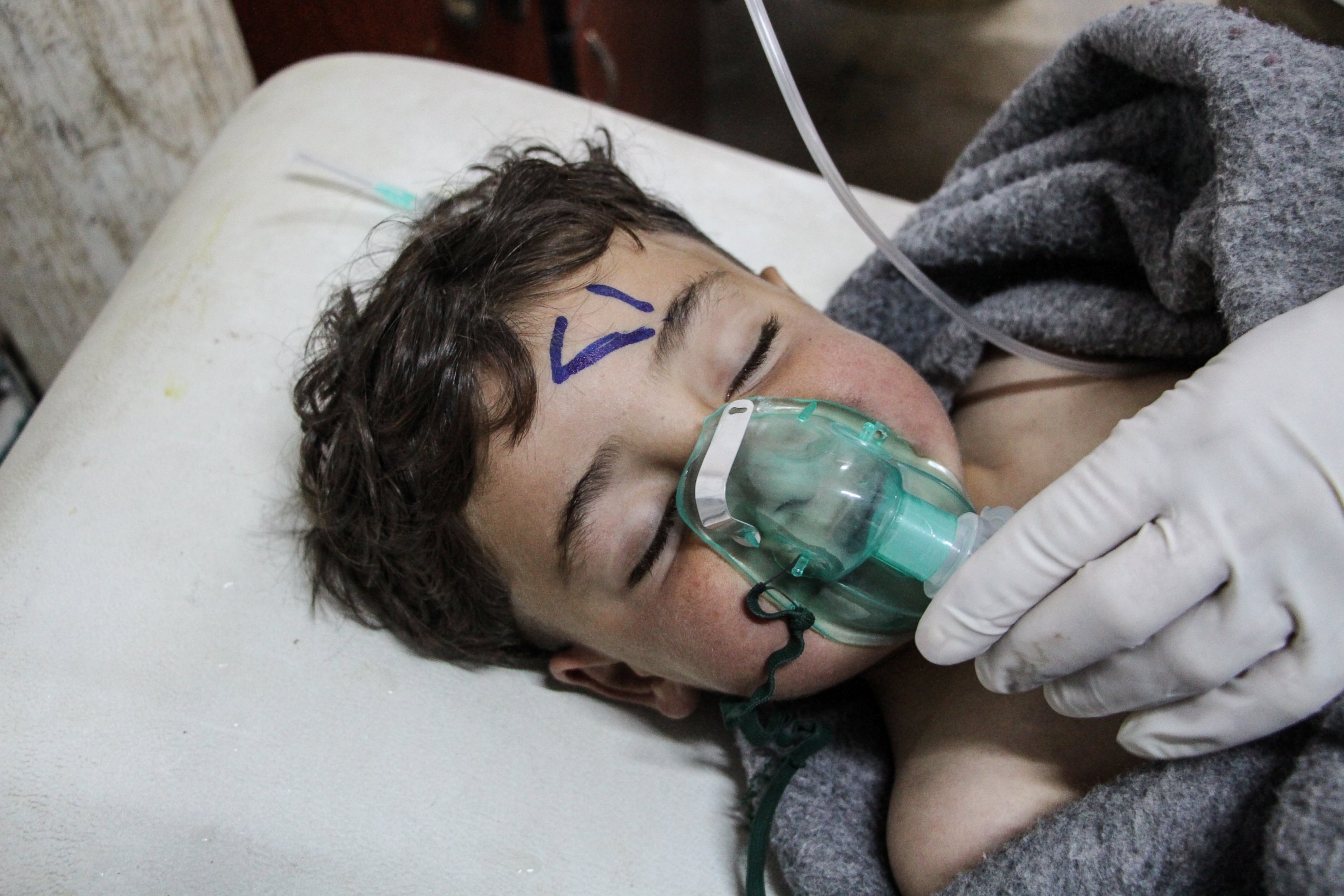
Russia has been a key backer of the Assad government, supplying government forces with weapons and, since September 2015, launching air strikes against "all terrorist" targets, though U.S. allies in the region have been mistakenly hit on occasion.
She urged the Trump administration to "press on the Russians" and seize the opportunity to lead.
"The United States needs to lead any effort to build a response and hold parties responsible," Hersman said. "Whether it's to impose sanctions to record and document things for future war crimes or to just stand up and make sure the Assad Regime know that we're watching ... It's urgent that we respond, and it's not enough to that we cast concerns about what happened in the past."




